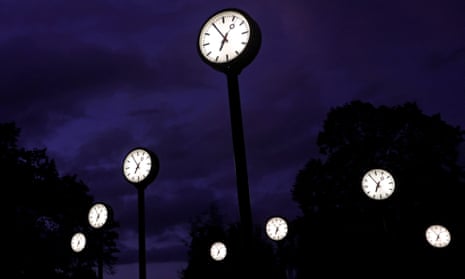Clocks and calendars within our immune systems could render us more susceptible to infection and injury at certain times of day or months of the year, a new study suggests. A better understanding of these rhythms could have implications for the prevention and treatment of diseases like Covid-19. It could also help explain why certain illnesses, like flu, tend to strike in winter, while the symptoms of other diseases, like multiple sclerosis, often worsen in summer.
Although recent studies have hinted that there may be seasonal or daily “circadian” rhythms in our immune function, this hadn’t been confirmed in large numbers of people until now.
“It has been clear for centuries that people are more susceptible to certain diseases in winter, but we still don’t really understand the role our bodies play in that,” said Dr Cathy Wyse, a postdoctoral researcher at the Royal College of Surgeons in Ireland, who led the new research.
To investigate, Wyse and colleagues turned to blood collected from some 329,261 participants in the UK Biobank study – which has followed the health of about half a million Britons for more than a decade – to see if the time of day or season when these samples were collected had any bearing on the immune cells they contained.
They found clear fluctuations in the numbers of white blood cells and markers of inflammation in the blood, suggesting that our immune function may be stronger or weaker, depending on what time of day or season it is. “It supports the idea that there might be endogenous clocks and calendars in the immune system,” said Wyse, whose research was published as a preprint and has not yet been peer reviewed.
Importantly, these variations were not related to environmental or lifestyle factors, or vitamin D levels: “This suggests such changes in our immune systems are due to our body clocks – the innate mechanisms that enable us to keep track of time,” said Dr Rachel Edgar at Imperial College London, who studies how viruses may exploit circadian rhythms to aid their spread.
bodIndeed, the daily fluctuations observed in this study mirror patterns Edgar previously documented in mice, with white blood cells congregating in the lymph nodes at the start of the mice’s active period and moving into the blood as the mice progressed towards their rest phase. What happens in those lymph nodes is key to our immune response to vaccines and viruses like Sars CoV-2: “In mice, the time of day that they are challenged [with a virus] has profound consequences for the immune response days later,” said Edgar. “This, coupled with evidence that the seasonal flu vaccine appears to be more efficacious when administered in the morning versus the afternoon, strongly suggests that certain Sars-CoV-2 vaccines may work better if administered early in the day.”
This theory has not been tested, and Wyse cautions against over-interpreting her results. However, from an evolutionary perspective, it makes sense to coordinate the activities of your immune cells with when you are most likely to be active “The simplest interpretation is that the immune system has evolved to be better at recognising and fighting potential pathogens during the daytime, because this is when humans would be most likely to come into contact with pathogens,” said Dr John O’Neill at the Medical Research Council’s Laboratory of Molecular Biology in Cambridge, who previously showed that cells involved in repairing tissue damage, migrate into wounds more quickly during the daytime.
“These findings are an exciting confirmation of how biological timing is fundamentally important for human health, said Prof Tami Martino, distinguished chair in molecular cardiovascular research at the University of Guelph in Ontario, Canada. “From a lifestyle perspective, we can use this new understanding of biological timing to guide our behaviours, perhaps restricting our activity during the night or in winter seasons, so as to minimise our exposure to pathogens at the times when we are least resilient.”
In separate research published last week, Martino discovered that the composition of the gut microbiome in mice also follows a day-night rhythm, and that feeding the mice during their rest period – which disrupted these microbial rhythms – impaired the mice’s ability to heal from heart damage.








